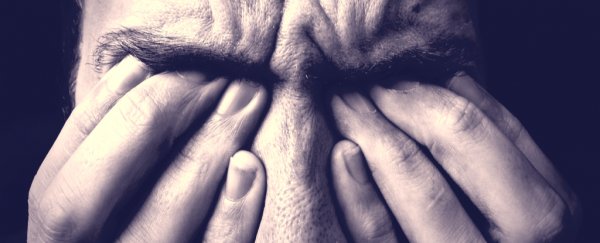When you hear about ketamine, you may associate it with being an illegal party drug that causes vivid hallucinations. But it's also a powerful anaesthetic, listed on the World Health Organisation's list of essential medicines.
And now it looks like we've found yet another amazing application for it - the treatment of migraines that have no cure.
The latest study focussed on 61 patients, all male, who had been suffering chronic migraines that did not respond to any of the treatments available.
This type of migraine is known as a refractory headache or intractable migraine. Even though it only affects less than 1 percent of all migraine sufferers, this version tends to be an especially severe form, causing debilitating episodes that last for days at a time or even longer.
Using an intravenous ketamine infusion for stubborn migraines is not an entirely new concept, but it's considered to be a "last resort" treatment and is not widely available.
It does make sense, though, because research has indicated that ketamine infusions can help with other stubborn pain conditions that don't respond to more conventional treatments.
Patients in this study all received ketamine infusions at Thomas Jefferson University Hospital in Philadelphia, a hospital that not only offers this option to patients, but also works to investigate its clinical benefits.
Each of the participants received a 3-7 day course of ketamine infusions at the hospital, and by the end of the treatment almost 75 percent of the patients had less intense migraines than before.
Migraine severity is typically rated on a scale of 0-10, and on average the 61 patients had a severity of 7.5. After the ketamine treatment, upon discharge from hospital that average rating dropped down to 3.4.
"Our study focused only on short-term relief, but it is encouraging that this treatment might have the potential to help patients long-term," says one of the team, anaesthesiologist Eric Schwenk.
It's important to note that so far all evidence for ketamine as an option for stubborn migraines comes from case studies and retrospective studies, rather than clinical trials which can establish a more direct causal link.
But since recent previous studies are pointing in the same direction, it's likely doctors and researchers are onto something here. The next step will be to get larger sample sizes to establish the best treatment option.
"Due to the retrospective nature of the study, we cannot definitively say that ketamine is entirely responsible for the pain relief, but we have provided a basis for additional larger studies to be undertaken," explains Schwenk.
"Our work provides the basis for future, prospective studies that involve larger numbers of patients."
The latest case study was presented at Anesthesiology 2017 conference.
